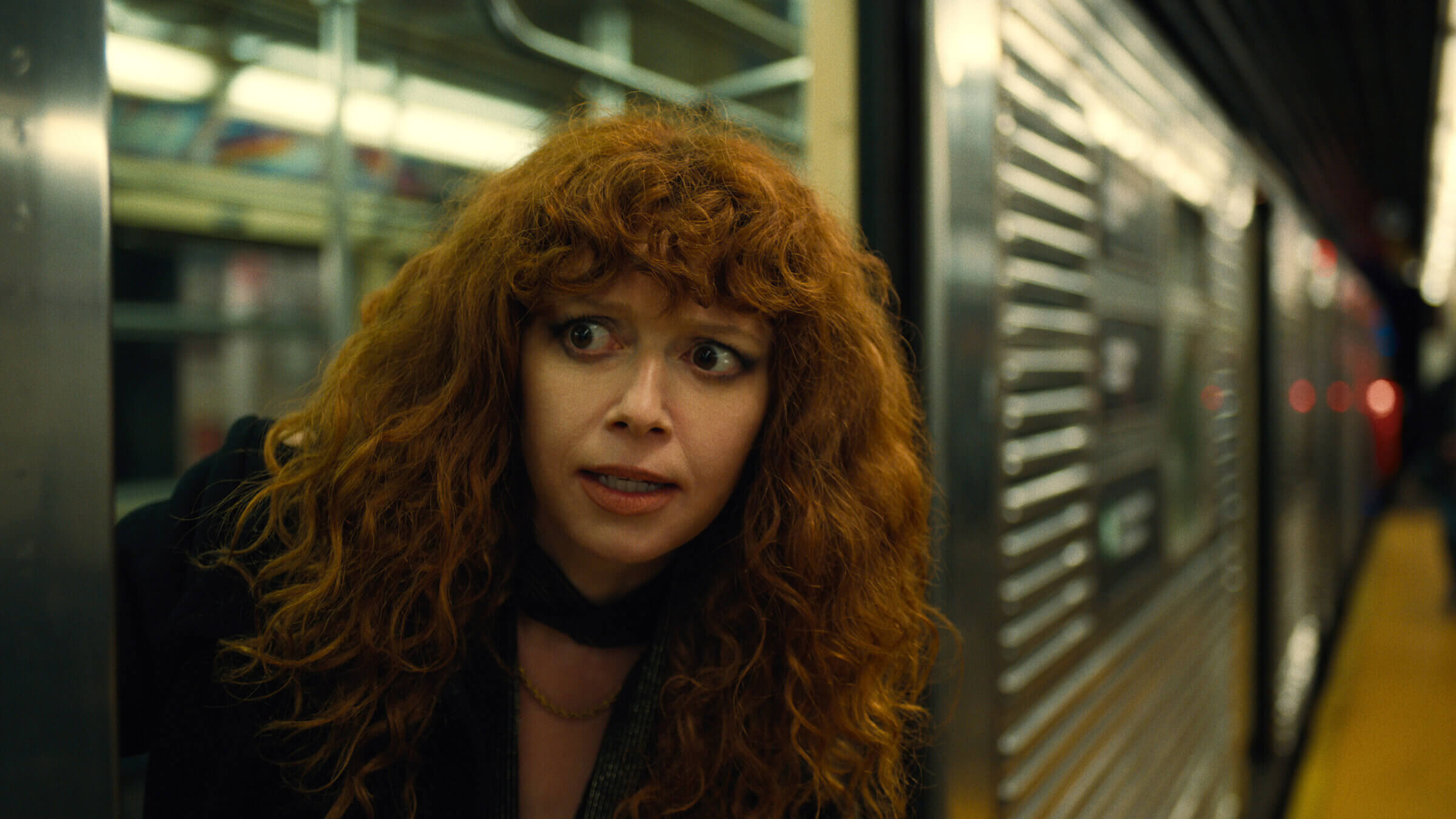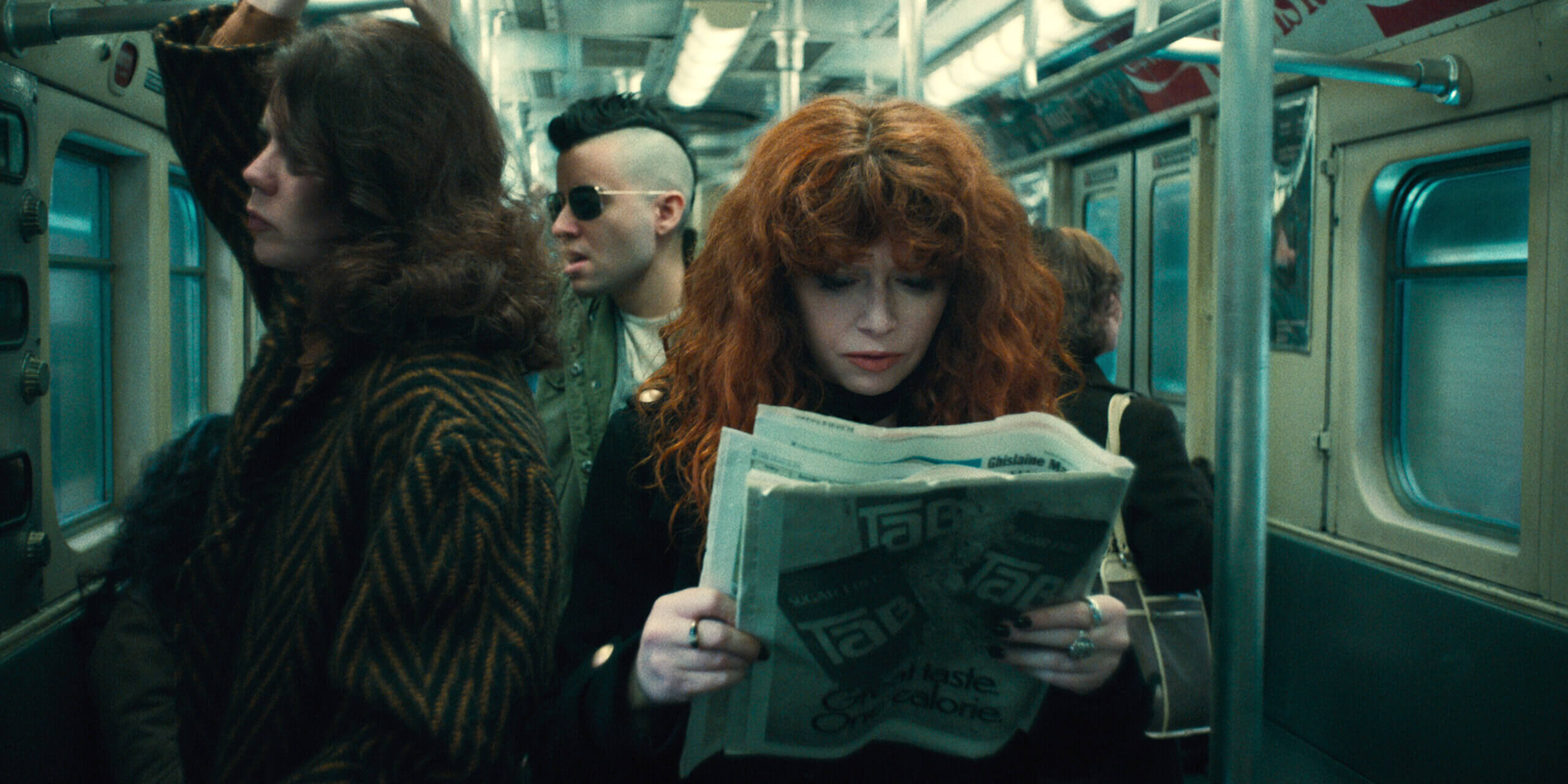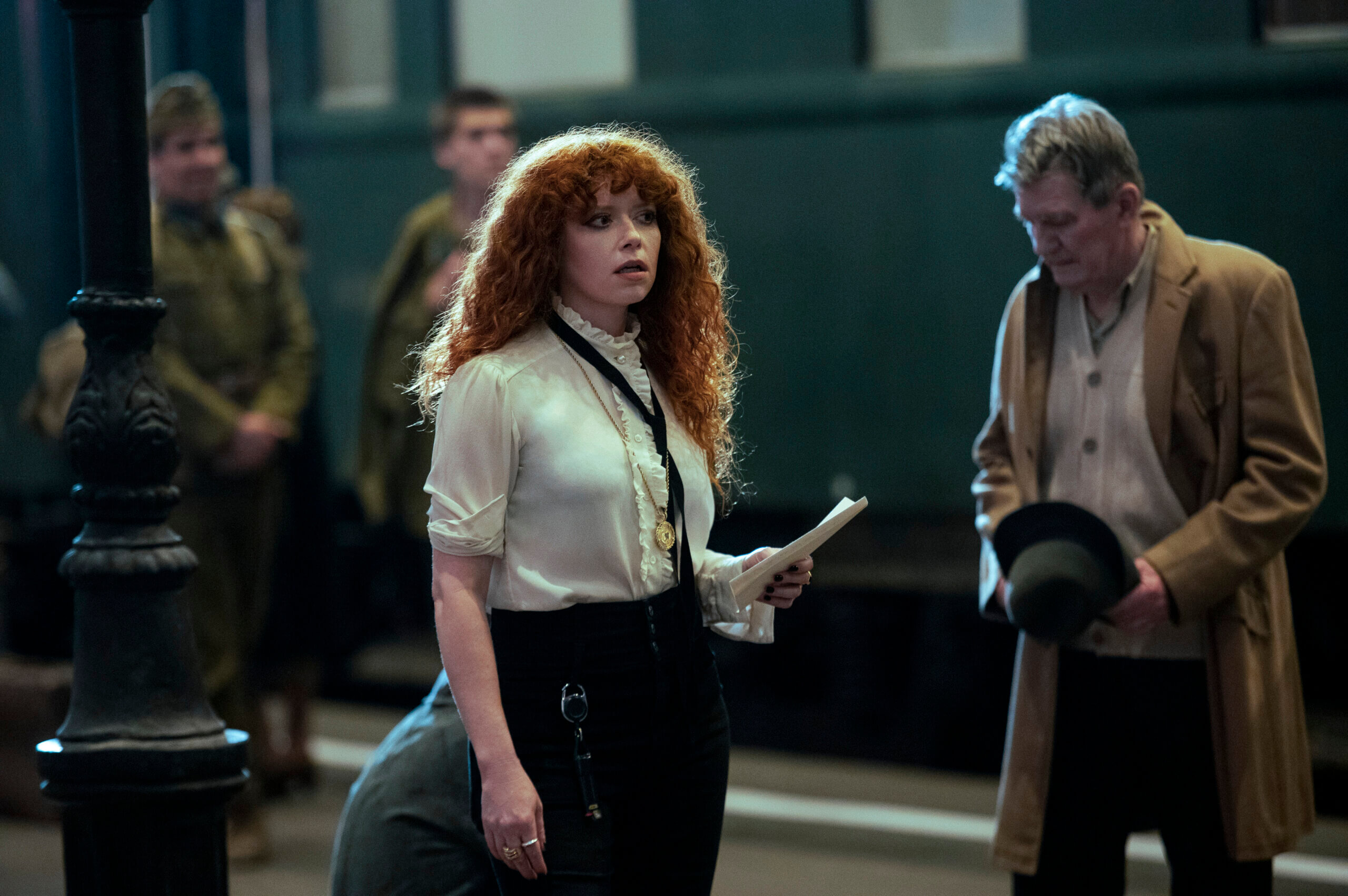In ‘Russian Doll,’ inherited Holocaust trauma spills through generations — via time travel
The mind-bending Netflix hit isn’t afraid of diving deep and getting weird in its hallucinatory newest installment.

Nadia looks out of her magic train car apprehensively. Courtesy of NETFLIX
When I saw they were making a new season of “Russian Doll” — Natasha Lyonne’s mind-bending Netflix series about being stuck repeating a single day à la “Groundhog Day” — I was upset.
The first season of “Russian Doll” was, like its subject, a perfect loop. The story felt like a philosophical thought experiment about the nature of time. And it ended artfully, with just the right amount of mystery. What were they going to do with another season, make their protagonist get stuck reliving another day?
The new season of “Russian Doll,” arriving three years after the first thanks to COVID delays, does involve time travel — this time backward, instead of in circles. But this installment is completely different from its predecessor. Sprawling where the first was tightly controlled, the second season uses the supernatural to address not the pressures of modern New York but the Holocaust’s reverberating impact across time.
When the show picks up , several years after the end of the first season, Lyonne’s character Nadia seems to have settled down, leaving behind the self-destructive behaviors of season one for a relatively stable life. That is, until she gets on a 6 train in Manhattan that catapults her to 1982, the year of her birth and a pivotal time in her dysfunctional family’s history.
See, Nadia’s grandmother was a Holocaust survivor, and Nadia is convinced that everything that went wrong in her life – including her mother’s mental illness – is due to the inherited trauma of the war. Thrown back in time, she becomes certain that her job is to change the past — to “mitigate the epigenetic k-hole before it begins,” as she says grimly.
This time around, Nadia can control how she travels through time. Able to take her magic subway both directions through the timeline, she starts feverishly researching and experimenting with her history, cross-referencing library information about the Nazi treatment of Jews in Budapest (part of the season was filmed on location in Hungary) with the information she’s gleaning firsthand from her family. After the Holocaust, her grandmother turned all the valuables she had left into gold coins for security upon the inevitable return of violent antisemitism — but Nadia’s mother stole and lost the gold, resulting in a massive familial breakdown. Nadia is fixated on the idea that if she can just get the coins back, everything will be fine.
What follows doesn’t always make exact sense — but it doesn’t need to. The complicated emotions triggered by family and history and war don’t follow logic. In “Russian Doll,” the exact rules of time travel or the facts of epigenetics or psychology are beside the point — the entire thing is visceral and artistic. The show’s rambling style — its many digressions include nods to old movies, arcane philosophy and schizophrenia — evokes the turmoil Nadia experiences rather than explaining or rationalizing it.

Though on the surface, the show is about Nadia’s attempts to help her mother and grandmother, the real subject of her efforts is herself. All of Nadia’s attempts to change the past are an attempt to tame her own demons, undoing her family’s past pain to better her own future. “I mean, it goes all the way down the line like turtles,” she says.
“Russian Doll” is a much heavier show in its second season, its witticisms outweighed by its serious questions. After all, it deals with mental illness, the complex harm mothers can do to their daughters and, of course, the Holocaust; there’s only so much lightheartedness to be had. But, of course, it’s still peppered with the darkly funny quips Lyonne is known for – “Swear to god, this f—ing re-parenting is going to give me an aneurysm,” she says upon meeting her infant self in the past at one point.
One has to wonder if the true subject of the show, more than mental illness or family history or time travel, is Lyonne herself. For season two, Lyonne has taken over as showrunner, and despite its esoteric and interpretive nature, the story is clearly personal. Lyonne wrote four of the season’s seven episodes and directed three. She also made a wide-ranging syllabus for the show’s writers, including readings from the likes of Viktor Frankl’s “Man’s Search for Meaning,” a hybrid memoir and psychological treatise detailing the author’s experience in the concentration camps.
There are plenty of obvious parallels to Lyonne’s own life. For example, like last season, much of the show takes place in an apartment located in a renovated yeshiva; Lyonne lives in a condo in a converted synagogue, with an Orthodox congregation still inhabiting the first floor. In one particularly meta moment, she seems to use her dialogue to poke fun at her real life. “This used to be a school for Jews, now it’s open-planned living for the enlightened,” she drawls.
Lyonne herself grew up between Israel and New York, her family mirroring the instability of Nadia’s. Her maternal grandparents, like her character’s, were survivors and struggled to deal with the fallout from the horrors of the Holocaust, passing on what Lyonne, in a recent New Yorker profile, called “damaged love.”

In exploring these personal demons, Lyonne recalls writers like Philip Roth, who often used his novels to explore the impact of the Holocaust on the children of survivors. But Lyonne picks up another generation down the line, showing the even subtler and more convoluted ways in which the Holocaust impacts the psyche of third generation descendants, no matter how distanced they are from the event itself.
There is, of course, no clear answer to these questions. But Lyonne’s chaotic show demonstrates an artful way to circumvent logic and render these issues intuitive and immediate. And it challenges our tendency to focus on the past, blaming events that already happened for all of our problems. Instead, “Russian Doll” posits that perhaps the answers — at least the only useful ones — lie in the future. After all, in real life at least, there’s no changing the past; the question is how we make our peace with it today.
“Just because I came before you doesn’t mean I have all the answers,” Nadia’s mother tells her. “You’re looking in the wrong place.”
A message from our Publisher & CEO Rachel Fishman Feddersen

I hope you appreciated this article. Before you go, I’d like to ask you to please support the Forward’s award-winning, nonprofit journalism during this critical time.
We’ve set a goal to raise $260,000 by December 31. That’s an ambitious goal, but one that will give us the resources we need to invest in the high quality news, opinion, analysis and cultural coverage that isn’t available anywhere else.
If you feel inspired to make an impact, now is the time to give something back. Join us as a member at your most generous level.
— Rachel Fishman Feddersen, Publisher and CEO
























